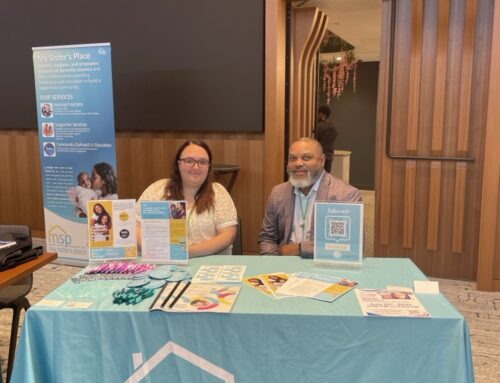Unsafe Housing in DC: Legal Action and On-the-Ground Realities
According to ABC 7, in April 2025, DC Attorney General Brian L. Schwalb filed a major lawsuit against the owner and managers of two multifamily apartment buildings located at 5128 and 5134 Sheriff Road NE in Ward 7’s Deanwood neighborhood. The properties, owned or managed by Mikhail Phillips, 711 49th Street LLC, RLP Investment Group LLC, and Vision Realty Management LLC, were the subject of over 100 housing code violations issued by the District Department of Buildings between 2021 and 2025.
The lawsuit outlines egregious and hazardous living conditions including:
– Trash accumulation both inside and outside the buildings
– Rodent, cockroach, and bedbug infestations
– Severe mold, water leaks, collapsed ceilings, and persistent sewage flooding
– Fire and electrical hazards, unsecured doors, and rampant squatting
– Frequent illegal activity, including drug and firearm incidents, with at least seven deaths or murders occurring on the properties
Despite tenants reporting these issues for years, the property owners allegedly took no meaningful corrective action. The Attorney General’s office is now seeking court intervention to appoint a receiver, pursue restitution for tenants, and hold the owners accountable under several DC laws, including the Tenant Receivership Act and Consumer Protection Procedures Act.
Dominique’s Perspective: Navigating the Crisis from the Ground Level
Dominique, a dedicated housing navigator and advocate working closely with clients seeking stable housing in DC, offered key insights during a May 9 meeting, directly tying her field experience to the conditions raised in the lawsuit.
As someone deeply embedded in the housing system, Dominique supports clients across programs such as FRSP, RISE, Sanctuary, and Rapid Rehousing, regularly helping MSP clients and voucher holders secure housing in an often hostile and inequitable rental market.
“Working with My Sister’s Place has been an incredibly rewarding experience,” Dominique said. “MSP is dedicated to creating meaningful housing solutions and providing unwavering support to families in need. Their commitment to advocacy and collaboration makes a real difference, and being a part of that mission has been both inspiring and impactful.”
During an all staff meeting when reporting out on her work as the Housing Navigator, she highlighted:
– Numerous housing requests and ongoing client support efforts, including 12 RISE program clients, with some in Resilient Futures, pending applications, or active unit searches.
– Challenges with landlords who are skeptical or resistant to voucher holders, often due to past negative experiences, which Dominique actively works to reverse by providing education and support.
– A practice of proactive site visits and vetting landlords—asking specific questions to assess whether property managers are familiar with voucher programs and whether they seem honest and engaged.
“I just ask questions about the unit, and see if the answers roll off their tongue,” she explained. “If they’re familiar with the voucher programs and truly know what they’re renting, it usually shows in how they talk about it.”
In one instance, Dominique investigated a building she hoped would be a good fit, only to later put it on her “Do Not Rent” list due to severe neglect.
“The condition of the building was horrible,” she said, despite it being a seemingly ideal location. “When I spoke to the building worker, he told me the landlord doesn’t listen. That says everything.”
Dominique’s experiences echo the systemic issues outlined in the Sheriff Road case. She recalled a case on Langston Place, involving a property formerly under a different property management name, now renamed under a new LLC, part of a wider trend where negligent landlords rebrand to evade accountability.
“We did four inspections with DHS, police, and community members,” she said. “One unit was breeding pit bulls. Out of twelve units, only two were legally occupied. The rest were squatters. We saw multiple failed inspections, and yet landlords just recycle these units and keep collecting funds.”
She raised a critical issue: landlords facing repeated failed inspections often suffer no real consequences. Despite emergency inspections and documentation of hazardous conditions, these landlords still receive government funding and can rent out to other voucher holders.
“The landlord recycles the unit—another family can go back in—and nothing happens,” Dominique explained. “We need stronger enforcement. The Department of Buildings needs to intervene more directly, not just issue citations. These landlords keep changing LLC names and gaming the system.”
Her work alongside agencies like DHS, DOB, and MPD underscores the urgent need for systemic reform, including stronger accountability mechanisms and the closure of funding loopholes for negligent property owners.
Advocacy Beyond Housing Placement
Dominique emphasized that her work isn’t just about finding units, it’s about empowering clients to demand better. As Mercedes Lemp, Executive Director of MSP noted during the meeting, many clients are securing their first homes and need education to understand that they deserve safe, livable spaces.
“Success means making a meaningful impact by helping as many clients as possible find safe, stable housing for themselves and their families,” Dominique said. “It’s about providing guidance, resources, and support that empower individuals to secure a home where they can build a better future. Knowing that I’ve played a role in creating stability and security for those in need is the ultimate measure of success.”
She also actively supports fellow advocates, providing resources, contacts, and insight into the housing landscape.
“Working with an advocate has been invaluable in helping clients secure stable housing and the support they need,” she said. “Advocates assist with documentation and follow-ups with landlords, especially when my workload is demanding. I also appreciate the opportunity to educate them—it empowers everyone to better navigate housing challenges.”
Dominique works to improve relationships between landlords and housing programs by identifying responsible partners.
“For landlords considering working with similar programs and/or survivors of domestic violence, patience is key. It’s essential to approach this work with understanding and flexibility, as every situation is unique,” she advised. “Network with like-minded landlords. Keep a sample lease-up packet ready, always follow up in writing, and don’t overpromise. Be supportive, but maintain professional boundaries.”
She continues to foster trust by building tools like a VIP landlord list, strengthening placements and improving housing outcomes.
A Path Forward
“This work requires resilience, dedication, and a deep commitment to making a difference,” Dominique reflected. “It’s not for the faint of heart, but the rewards, seeing individuals and families find stability and hope, make every challenge worth it.”
Dominique’s perspective offers a human face to the legal action brought forth in the Sheriff Road case. Her insight reveals a troubling pattern—one in which landlords avoid accountability while vulnerable families are recycled through unsafe properties.
But it also points to a solution: compassionate, informed, and persistent advocacy.
Legal enforcement plays a critical role, but true change depends on the collective work of frontline professionals like Dominique, empowered tenants, and a city willing to hold landlords to a higher standard.





